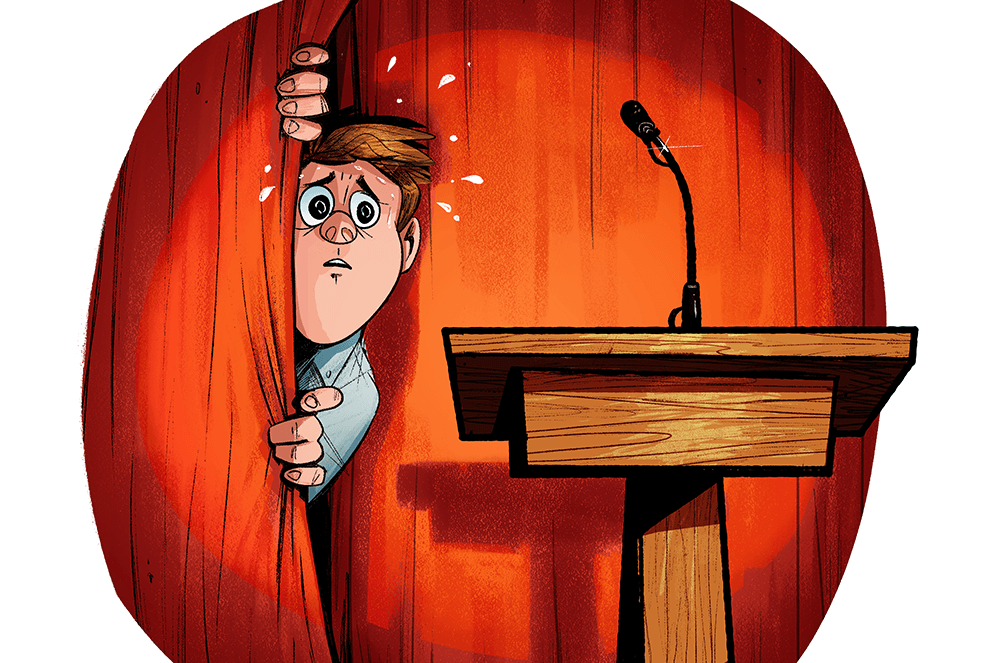
They make it seem so easy, so effortless, as if it flows through them like a crystalline stream in an Alpine meadow. I’m talking about the great speakers of the world, the Lincolns, the Churchills, the Dr. Kings. How can we ever dream of rhetorical renown when we are consigned to forever dwell in the shadows of the gods?
By seeing them fail, that’s how. By watching them slip on a banana peel, metaphorically or otherwise. This is awful, of course … this need to see others fail where we wish to succeed. But there it is. As the French author Franҫois de la Rochefoucauld said, “If we had no faults of our own, we would not take so much pleasure in noticing those of others.” Therefore, being a person of multitudinous faults, I feel eminently qualified to take some small pleasure in the foibles and failings of history’s most august speechifiers. You are welcome to join me.
What could be more perfect than Abraham Lincoln’s Gettysburg Address? Glad you asked. Experts tell us that a good speech must catch the audience’s attention within the first five seconds. I don’t know how this can be, since every speaker I’ve ever heard spends at least five seconds tapping the microphone and saying, “Is this on?” Assuming the experts are right for once, Lincoln failed miserably. He began his speech with “Fourscore and seven years ago …,” then continued speaking while his listeners were left behind to do the math. He also lied when he said, “The world will little note nor long remember what we say here.” If Honest Abe really believed his remarks would be forgotten, he wouldn’t have spent three days preparing them and then given out five copies to various colleagues “just in case” someone might want a souvenir.
It’s romantic to envision the Great Emancipator hastily scribbling those immortal words on the back of an envelope while riding a train to the event but … it just ain’t so. Abe had one for the ages in his pocket and he knew it.
In modern times we have Dr. Martin Luther King Jr.’s famous “I Have a Dream” speech, delivered in Washington, D.C., on August 28, 1963. Dr. King’s oratorical skills were indeed gargantuan, but his immortal phrase was not in the script that day. Dr. King was talking about jobs and freedom when Mahalia Jackson, the great gospel singer, shouted, “Tell them about the dream, Martin!” referring to an earlier speech of Dr. King’s. Knowing a good idea when he heard one, the Atlanta preacher set aside his text and proceeded to improvise one of the most galvanizing perorations in American history. So yes, Dr. King gets full credit for his monumental accomplishment, but I will still enjoy the pleasure of knowing he had to be reminded.
As long as I’m going after big game like Lincoln and King, why not Winston Churchill, the lion of English eloquence? Who among us has not thrilled to the sound of the British Bulldog’s sonorous voice intoning his famous “We shall fight on the beaches” speech on June 4, 1940, when England’s fate seemed perilous? Alas, it becomes a little less thrilling when we know that those stirring words we still hear today on radio and TV were recorded, not from the ramparts of war-torn Britain in its darkest hour, but from the bright, sunny comfort of Churchill’s country home in Chartwell nine years later, when someone thought it should be preserved for posterity. (His original 1940 address was reported on in the news but never broadcast.) That the old prime minister could have conveyed the same sense of danger and destiny four years after England was safe and sound is a remarkable feat … of patriotism or acting. I’m not sure which.
Another British prime minister, Theresa May, fared far worse. On October 3, 2017, she began a speech on Brexit that went sideways in a hurry. First, she erupted into a coughing fit that had her sucking down water and throat lozenges like someone with the swine flu. Then the sign behind her reading Building a Country That Works for Everyone dropped the “f” in “for,” leaving Ms. May hacking like a consumptive in front of a campaign slogan that suddenly made no sense. She resigned two years later over opposition to her Brexit plan. I say it was the speech.
So now, as the American radio personality Paul Harvey used to say, you know the rest of the story. Even those with tongues of silver can have feet of clay. It doesn’t make them less praiseworthy. It just makes them more human, more like—dare I say it?—you and me. It’s true. You may never be a president or a prime minister or the leader of a social movement, but you will have to give a presentation or speak at the awards dinner. And should you stumble, you can continue on confidently, knowing that Abe, Martin, and Winston would be proud.
John Cadley is a former advertising copywriter, freelance writer, and musician living in Fayetteville, New York. Learn more at www.cadleys.com.







